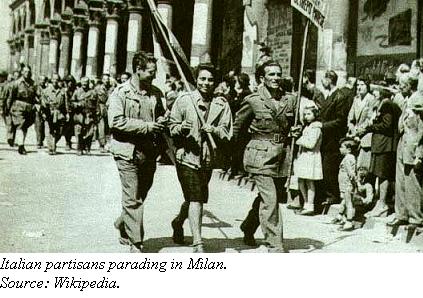Monsignor Hugh O'Flaherty
An Unbelievable Request.
 One day in late May, O’Flaherty was visited by an unidentified Italian nobleman, who opened the conversation by praising the priest’s bravery and cunning. O’Flaherty waited for the man to get to the point. Finally the nobleman said: he had a message from Ludwig Koch. A request.
One day in late May, O’Flaherty was visited by an unidentified Italian nobleman, who opened the conversation by praising the priest’s bravery and cunning. O’Flaherty waited for the man to get to the point. Finally the nobleman said: he had a message from Ludwig Koch. A request.Koch knew the Germans would soon loose control of Rome. He also knew exactly what would happen to him if Italian resistance fighters got their hands on him – probably his own tortures would pale in comparison. Koch was willing to take his chances at getting away. But he could not risk taking his wife and mother with him. And if they were found in Rome, the Italians would see them as convenient scapegoats, and kill them just as easily.
So Koch was asking O’Flaherty to smuggle them to safety.
Even O’Flaherty was taken aback. The man who had publicly outlined the tortures he had waiting for the Irish priest was now asking for help? Koch was, of course, ready to bargain. If O’Flaherty would save his family, Koch would make sure that the captured organization members were left behind in Italian prisons and not transported to Germany. And they were left – except for a small group, which was trucked about 14 miles outside the city, and then shot. O’Flaherty, for his part, made arrangements for Koch’s wife and mother to be taken to Naples and sheltered in a convent. The two women ultimately decided not to go, but O’Flaherty had kept his word.
Liberation!
 On June 3, Vatican radio picked up a call from a British spearhead division that had reached the Pope’s summer villa, several miles outside of Rome. Derry radioed back with the military situation of the city. German troops were simply pulling out. They were still shooting, still threatening, still stopping citizens and demanding to see identity papers, but the end was coming. At 7:15 p.m. on June 4th, the Allies entered Rome. They were greeted by cheering crowds. Many of the people Kappler had arrested a few months earlier just walked out of the prisons. The refugees and their padrones planned huge parties. Sir D’Arcy, Derry, and John May watched from the roof as St. Peter’s Square filled with thousands of thankful Romans and Pope Pius appeared on his balcony to bless the city. And O’Flaherty?
On June 3, Vatican radio picked up a call from a British spearhead division that had reached the Pope’s summer villa, several miles outside of Rome. Derry radioed back with the military situation of the city. German troops were simply pulling out. They were still shooting, still threatening, still stopping citizens and demanding to see identity papers, but the end was coming. At 7:15 p.m. on June 4th, the Allies entered Rome. They were greeted by cheering crowds. Many of the people Kappler had arrested a few months earlier just walked out of the prisons. The refugees and their padrones planned huge parties. Sir D’Arcy, Derry, and John May watched from the roof as St. Peter’s Square filled with thousands of thankful Romans and Pope Pius appeared on his balcony to bless the city. And O’Flaherty?He was in a tiny Vatican chapel, praying. Sometime in his life, somewhere in his heart, O’Flaherty had made a promise to help anyone who needed help, no matter their nationality, no matter their religion, no matter which side they were on. Now that the tide of war had turned, it was no longer the British and the Jews who needed help; it was the Italian Fascists and the Germans.